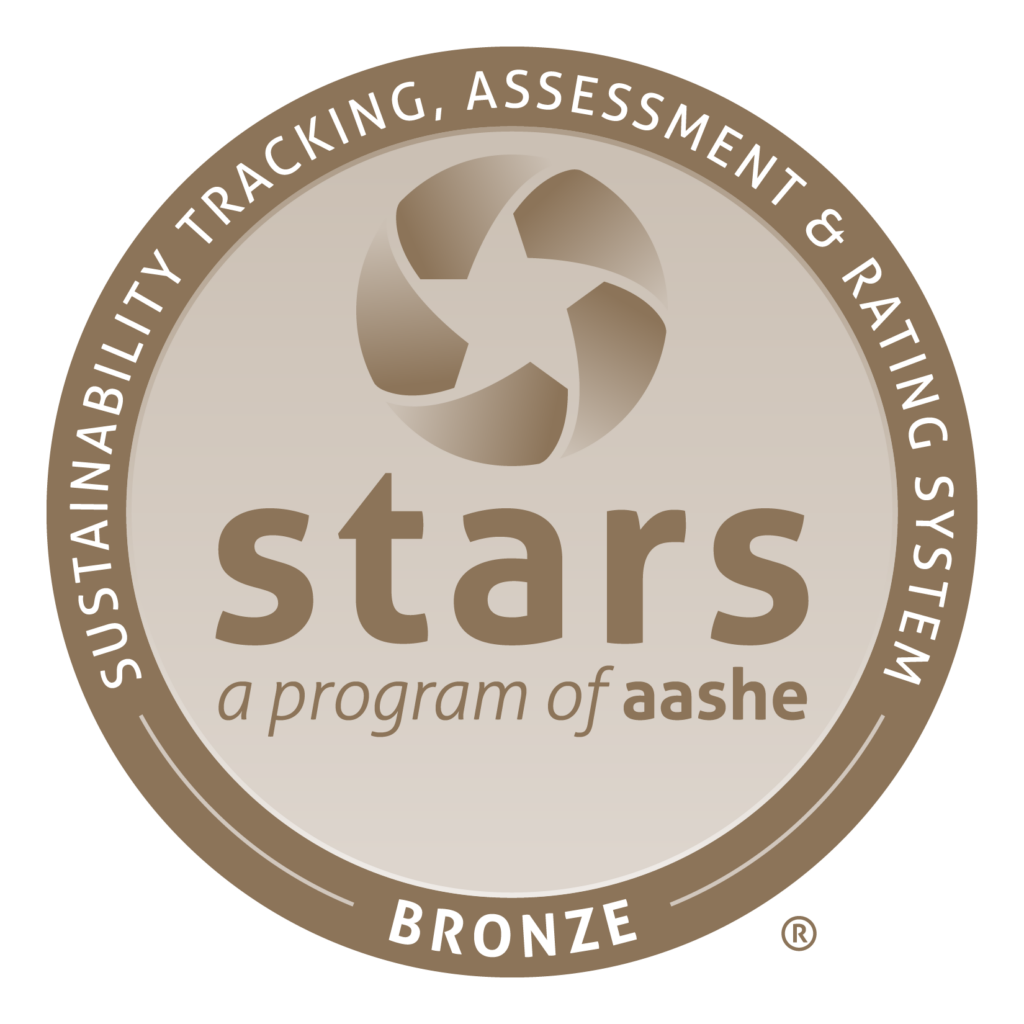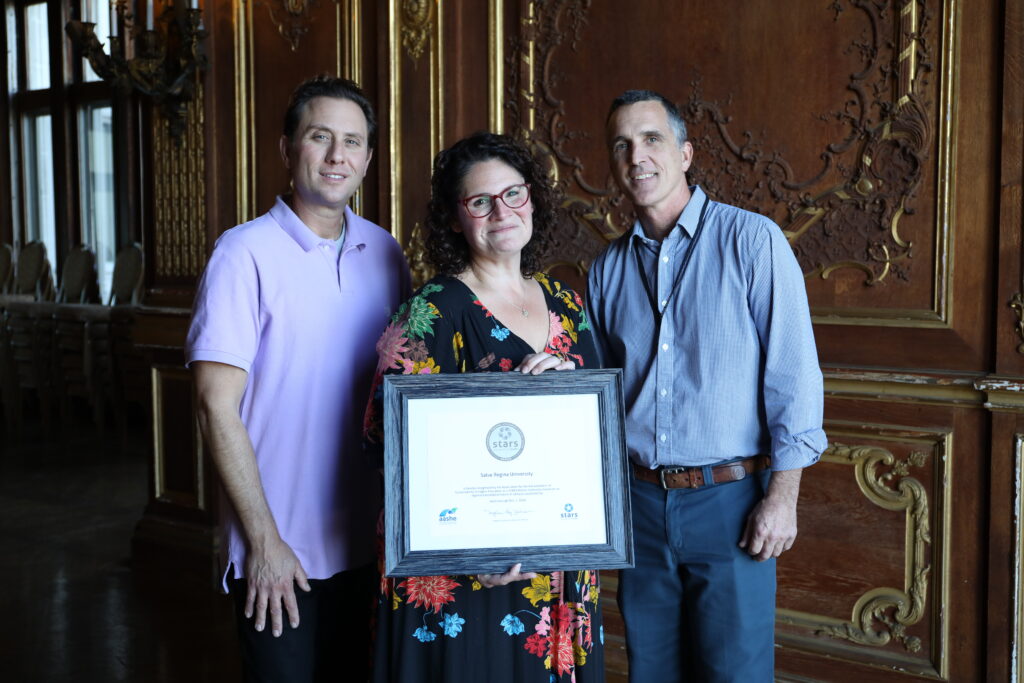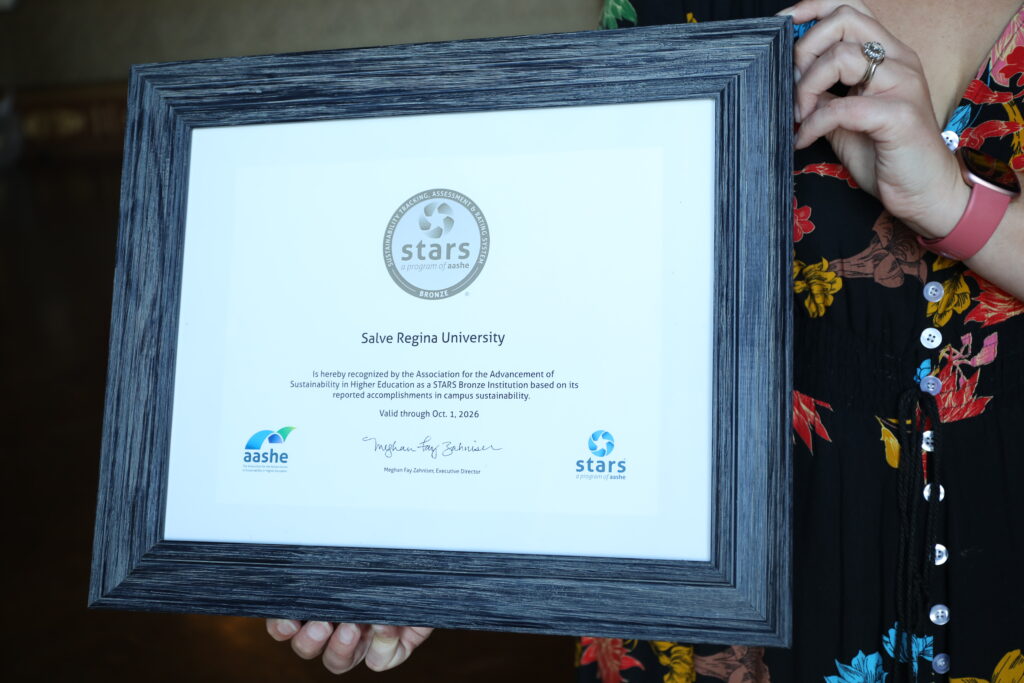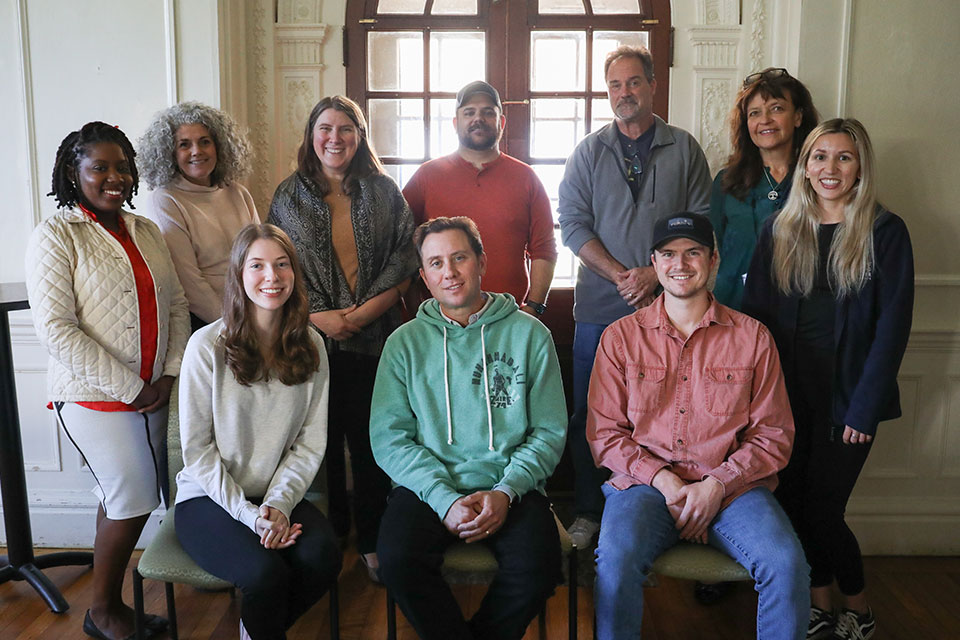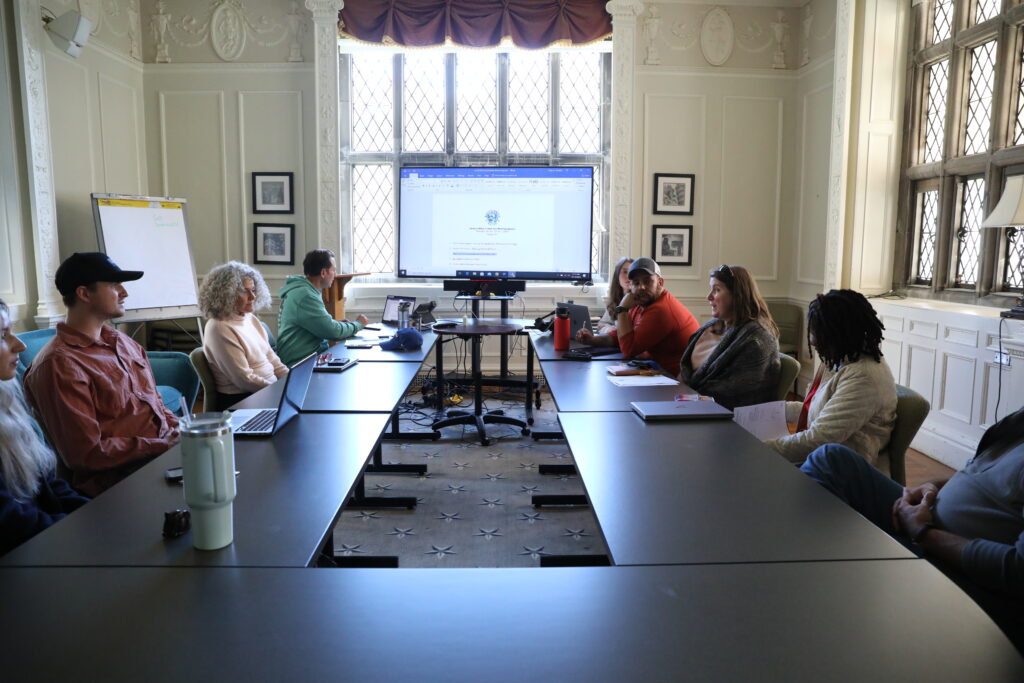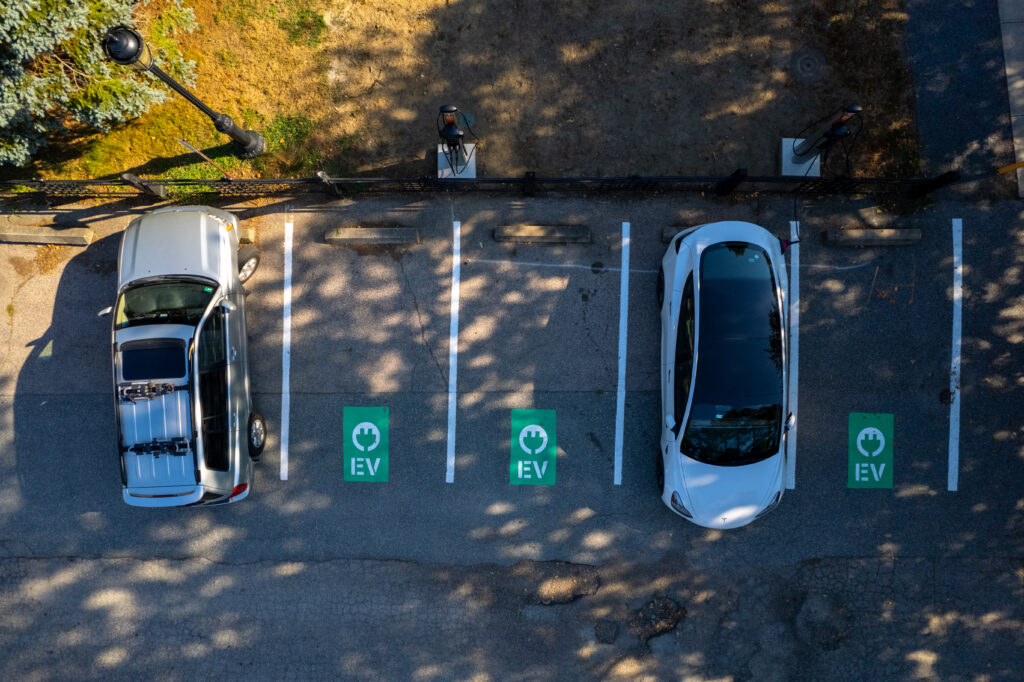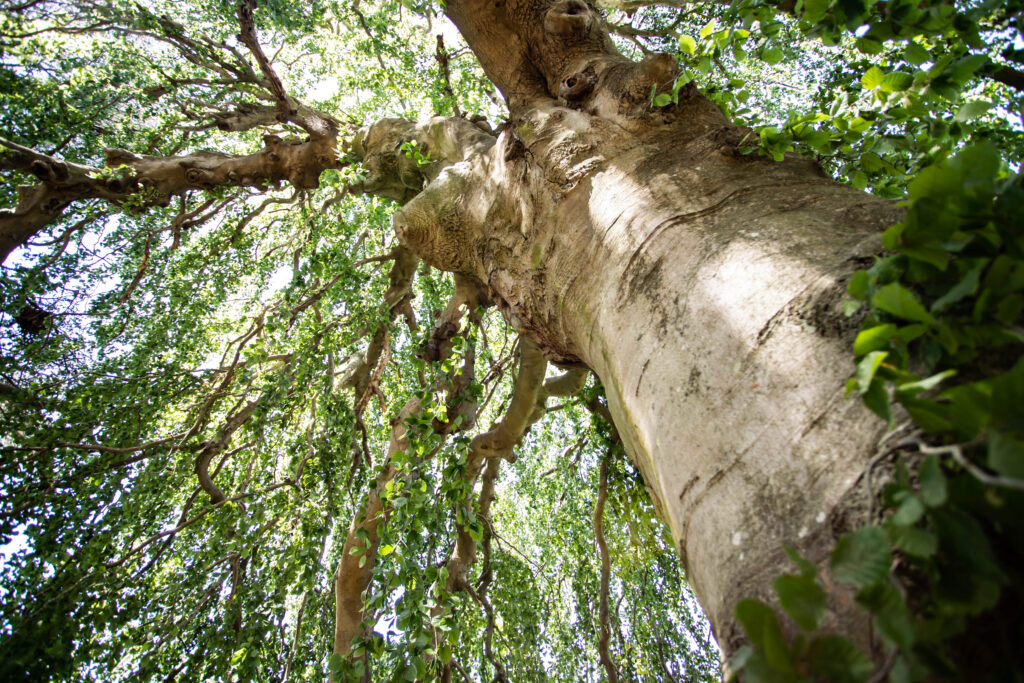Salve achieves an AASHE’s STARS Bronze rating for sustainability efforts across campus
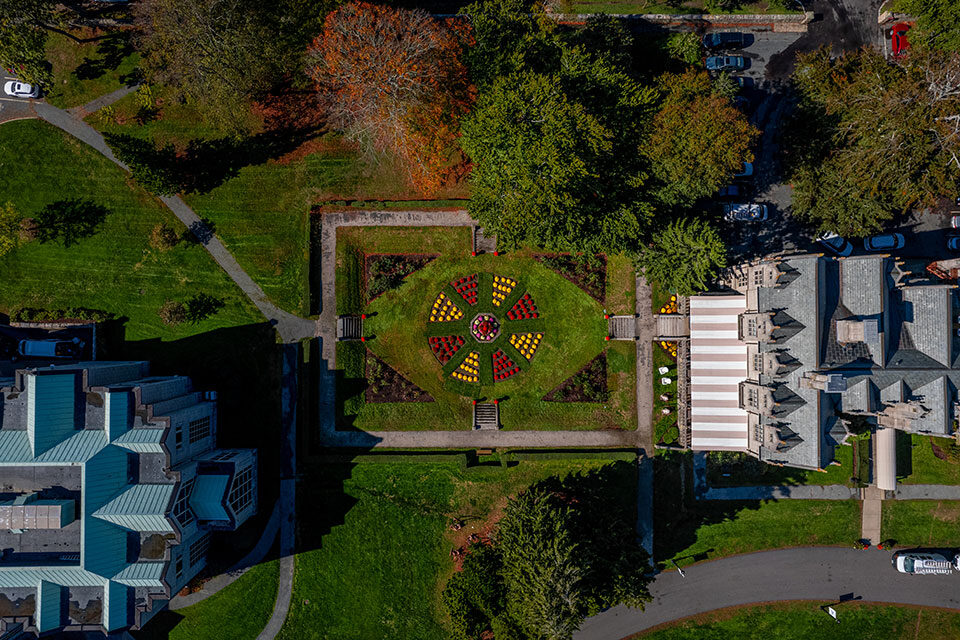
Salve Regina is pleased to announce that the University has been granted a Bronze rating by the Sustainability Tracking, Assessment & Rating System (STARS) offered through the Association for the Advancement of Sustainability in Higher Education (AASHE).
Salve congratulates every single employee and student involved in this achievement.
With over 350 universities and colleges currently participating across 15 countries, AASHE’s STARS program is the most widely recognized benchmarking framework for sustainability performance indicators across higher education – with official designations of Reporting Status, Bronze, Silver, Gold and Platinum.
The STARS program is a self-assessment tool designed to help colleges and universities provide a framework for understanding sustainability, use a common set of measurements for discussion, create incentives for improvements, and build a more diverse campus sustainability community.
“The rating helps create a concrete pathway for faculty, staff, students and trustees to advance sustainability at Salve,” said Dr. Theresa Ladrigan-Whelpley, vice president of mission integration. “This is really important to who we are as a mercy, Catholic institution. In our mission, we emphasize that we are stewards of God’s creation. A commitment to sustainability is part of building a more harmonious, just and merciful world.”
How to achieve an AASHE STARS rating
AASHE’s process for universities to become rated is rigorous. Salve’s Bronze rating of 32.08 is based on a thorough review and vetting of Salve’s submitted report detailing the University’s sustainability initiatives in curriculum and research, facilities and operations, planning and administration, campus and community engagement, and innovation and leadership.
This initiative was spearheaded by Sustainable Salve, Salve’s sustainability committee, which is organized by Dr. Ladrigan-Whelpley and led by co-chairs Jared Coleman, assistant director of facilities; Dr. Craig Condella, chair of the philosophy department; and Mary Beth Pelletier, program manager of mission integration.
The process began back in 2019 when Sustainable Salve solidified into its current form, according to Dr. Condella. The committee then slowly began researching and drafting the AASHE STARS report with help from faculty, staff and students.
“We were going for Reporting Status just to get on the board and see where we were at,” Dr. Condella described. “We didn’t necessarily have a goal to get an actual STARS rating, and we were really pleasantly surprised that when we submitted the report this summer that we were able to achieve the Bronze rating.”
As the sustainability committee began to coordinate what they needed for the AASHE report, the movement continued to grow — and Sustainable Salve itself is now a group of about 30 members with numerous other people at the University involved.
“We’ve certainly had a very nice mix of staff and faculty, students and administration involved,” Coleman said. “There’s about 70 sections under five base headings to include in the entire report, so it was important for it to be a movement across campus.”
A movement towards sustainability across campus
Sustainable Salve was able to start making connections and creating conversations across campus as they tried to collect data for the AASHE report.
People like Michael Caruolo, director of safety and security, became an important person in the conversation, according to Coleman.
“Mike was able to provide a ton of information on the campus fleet of vehicles,” described Coleman. “How many vehicles do we have? How efficient are they, and how efficiently are we using them? It was questions like these that helped us realize where there’s room for improvement.”
The electric vehicle charging stations that were installed on Salve’s campus in 2022 came out of these conversations — an effort lead by Eric Milner, associate vice president for facilities. Samantha Angel, purchasing manager in the business office, became a member of the committee – and through Angel, Salve is now planning on how to make purchasing options across campus greener in the future.
Students also got involved, including several classes of BIO-140 Humans and Their Environment who crafted projects around these efforts.
“They were able to take aspects of the AASHE STARS reporting and do research … so that we could incorporate their findings into the report,” said Dr. Condella.
The AASHE report also helped the committee realize that the carpeting across Salve’s campus is provided through Interface, Inc., a carpet company that makes carbon neutral flooring. In April 2023, Salve hosted a screening of the documentary “Beyond Zero” during Earth Month that was about Interface.
Where Salve ranked strongly in the AASHE STARS report
Salve ranked well in many areas, according to the AASHE STARS report. One of those areas includes Public Engagement, which gives points to institutions who make efforts towards creating sustainable communities by outreach to the public. Salve’s community links with Save the Bay, Clean Ocean Access, Aquidneck Land Trust, Aquidneck Community Table, Rose Island, and Tree Campus proved impressive.
Another area the University received more points in was Academic Research and Curriculum, which looks at the number of courses at Salve that connect students to environmental issues. Currently, there are 30 undergraduate courses at Salve that are sustainability-focused — meaning that the explicit focus of the course is on topics of sustainability — while 23 are considered to include topics of sustainability in other ways.
Salve also has a Mercy Interdisciplinary Faculty Collaborative on Earth offered to six faculty members through the McAuley Institute for Mercy Education, and Salve received credit for its diversity, equity and inclusion (DEI) efforts under Planning and Administration: Diversity & Affordability as an institution who offers trainings in anti-oppression, anti-racism and cultural competence for staff, faculty and students.
In the areas of Food & Dining, Salve earned points for having a thoughtful vegan menu, for Sodexo’s commitment to food waste prevention and trayless dining, for donating food after events, and for Salve’s commitment to composting in many areas. Mark Rodrigues, general manager, and his Sodexo dining team are currently working towards Green Agreement Kitchen Certification. The Hydroponics Lab on campus also donates herbs and vegetables to the Martin Luther King, Jr. Community Center and Aquidneck Community Table.
Salve even received extra points under Innovation & Leadership because the campus has been recognized as a Level II arboretum by the Morton Arboretum’s ArbNet Arboretum Accreditation Program. The University is committed to ongoing efforts to preserve and protect its 1,200 trees of more than 100 distinct species.

Many of Salve Regina’s trees are hundreds of years old, and it has received Tree Campus USA Higher Education recognition from the Arbor Day Foundation.
Looking towards the future of sustainability at Salve
Now that they have a ballpark rating as to where Salve Regina lands, there are many ways to improve for the future, according to the sustainability committee leaders. Salve is already three quarters of the way towards achieving a Silver rating.
“One of the areas we didn’t score high on was building design, as many of our historic buildings were constructed before the sustainable options available today,” said Dr. Ladrigan-Whelpley. “So thinking about that for our future can be a priority with new campus renovation and construction.”
No matter what the future holds, Sustainable Salve is so excited about the ways they — along with everyone on campus — have moved the conversation forward over the past four years, and they are excited that the AASHE STARS rating of Bronze can help spur them to further initiatives down the road.
“The committee is pleased to have this report completed, because as a committee we can now move forward and be proud that we made a difference,” said Pelletier. “I’ve seen a deeper level of engagement from the committee now that we’ve got this report, and I’m excited to see where this takes the future of sustainability at Salve.”

